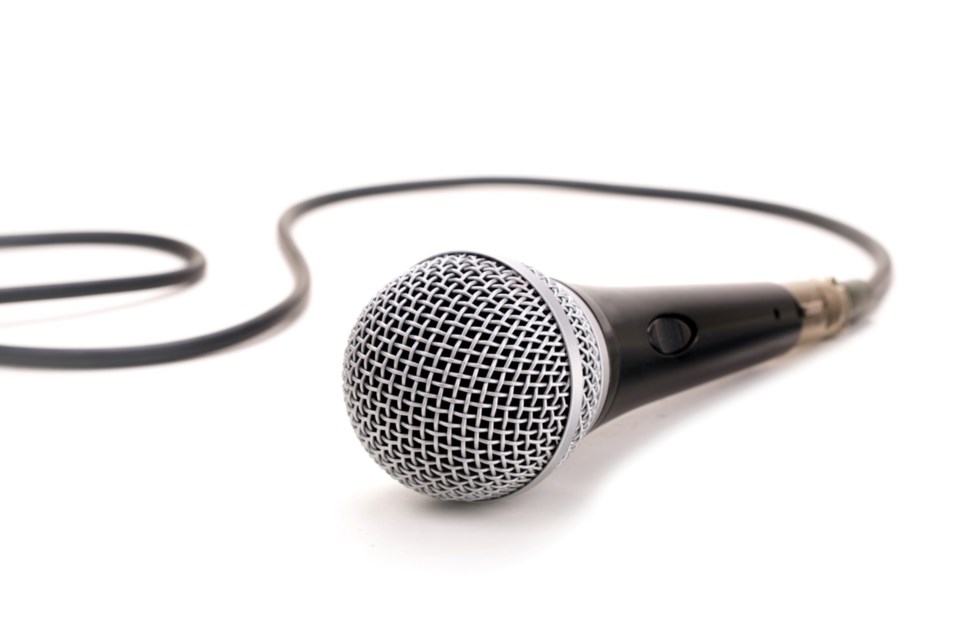Welcome to the third episode of Reporters Shop Talk, I'm Stu Campaigne and I'm here with Dave Dale, a Local Journalism Initiative reporter with three decades of experience in the business.
Today, we're going to go over some of Dave's experiences as a photographer and he shares some strategies for taking photos and some tips about the ethics of photography.
You will find below the full episode transcript plus the embedded audio file. Enjoy!
---
Dave: I was at the North Bay Farmers' Market the other weekend and I was trying for a certain type of shot.
And what I did was I went to the guy behind the booth and I got his card, told him what I was shooting it for.
Then I backed off and waited for customers to come.
And I was hiding, sort of standing over to one side so I can get the right light, the right angle with the right poster in behind him, in front of them. And I waited for some shoppers to come and I knew that I was going to get a sort of an exchange photo that's candid. But I wasn't imposing myself in front of the person trying to buy something. And I knew if I got a good shot with their face, I would approach them later to get their name. But it was like I always sort of employ the shoot first, ask questions later technique, and that seems to work better.
Stu: How does that fit into privacy laws and stuff? I mean, if it's in a public place, like a farmers market, it's fair game?
Dave: Well, actually, if it's at the mall like they do here in North Bay for the winter, you're on private property in the mall. So you do have to be aware that mall security can ask you to leave and you have to and that it's a little bit different than that. A public venue.
If you were at the outdoor market, that's a little bit more public. It's a public space. They're renting it. There are some legalities there, but it's "assume more of a public space," when it's outside like that. But, most people and most people at like the market want to see some promotion for it because they want to see it successful. So they're not really going to get in the way of it. But there are people that if they tell you that they don't want their photo in and we're in the private space, they have some recourse there. Actually, they do in the public space.
If I'm on the sidewalk I can pretty well shoot anything as long as I'm not shooting into somebody's bedroom window. Right. That's their private space. They have an expectation of privacy. But I can shoot, you know, if a car goes off the road and lands in their front yard and takes out the front door, I can shoot that no problem.
That's a justified news story. But I can't go onto their property to shoot it. And you wouldn't want to shoot into somebody's window. And so there are some technicalities as far as that public space and public photos go.
Stu: So far, we're looking to make nice with the public. We're not trying to take their photo when they don't know and at least not let them know we're going to use it and things like that.
Dave: Yeah, like, for example, when I was at the farmer's market, a lady approached me and asked me for my ID as a reporter, and she was suggesting I should be asking people ahead of time before taking a photo. My knee jerk sort of instinct is to tell her to mind our own business. But I'm representing a news outlet. I'm representing myself. You want to be nice. It's just easier that way. There's yeah. There are times when you have to draw the line and stand up for your journalistic rights. Right. But most of the time you're you're in public affairs. Right.
Stu: So what's the issue then? Is the issue taking someone's photo or using the photo?
Dave: Well, that's a good point, because it's all in how you use a photo that'll get you in trouble and also for legalities. So I can take a photo at any public event, but I can't use that photo for marketing purposes, for example. Right. Without permission, without their release. A signed release. Most places wouldn't use a photo in an ad without a release from anybody that's identifiable.
But, also if I took a crowd shot. And the headline for that story was that there was a pedophile at this event and somebody was identifiable. They could take issue with that, right? They could I'm not sure where it stands in court, but it all depends on the headline and what's in the caption. That's just an example. It's all it depends on how you use the photo. Most news shots are pretty well exempt if you're using it in the news to illustrate a news story because it's for the public interest. There are some issues if you take that same photo and use it for something else that's not news.
Stu: I think that pretty much wraps up that discussion. And I learned more in the last ten minutes than all last week, I have to tell you.



